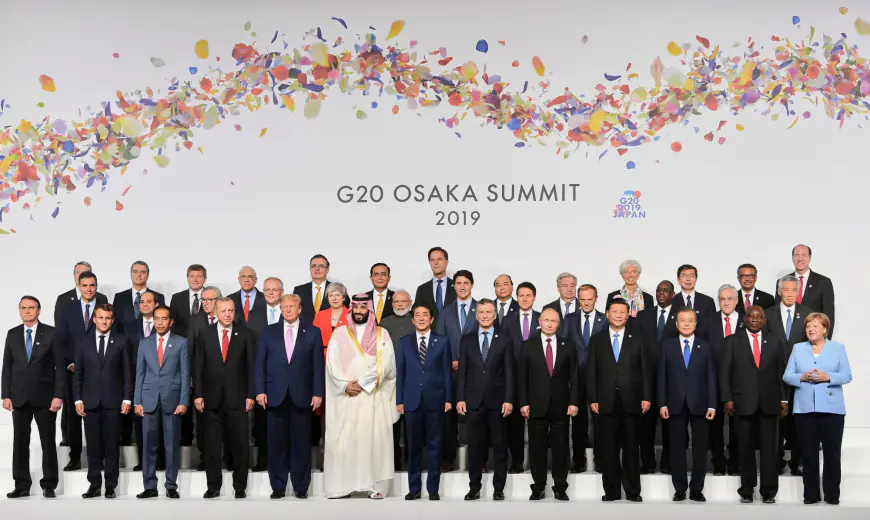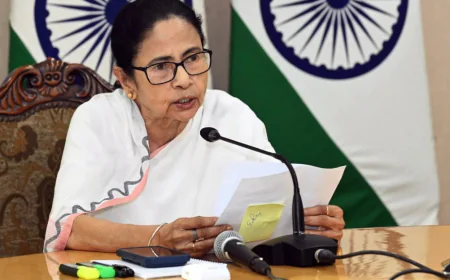The Significance and Role of G20 in the Global Economy - Essay/Article
The Significance and Role of G20 in the Global Economy - Essay/Article

The Group of Twenty (G20) is a prominent international forum that brings together the world's major economies to address global economic and financial issues. Established in 1999, the G20 has grown in importance and influence over the years. This essay will delve into the significance of the G20 in the global economy, its structure, functions, and its impact on global economic governance.
Significance of G20 in the Global Economy
1. Economic Significance:
The G20 comprises 19 individual countries and the European Union, representing around 85% of global GDP and two-thirds of the world's population. This composition makes the G20 a powerful platform to discuss and coordinate economic policies on a global scale. Its significance lies in the fact that decisions taken within the G20 can have far-reaching implications for the world economy.
2. Crisis Management:
One of the most notable contributions of the G20 is its role in managing global financial crises. The G20 played a crucial role during the 2008 financial crisis, where its members implemented coordinated measures to stabilize financial markets, stimulate economic growth, and reform the international financial architecture. This demonstrated the forum's ability to act decisively in times of crisis, preventing a global economic catastrophe.
3. Promoting Economic Growth:
The G20 has a primary objective of promoting global economic growth and financial stability. Member countries engage in discussions and policy coordination to address various economic challenges, such as trade imbalances, currency fluctuations, and debt sustainability. These discussions can lead to recommendations and initiatives that benefit both individual countries and the global economy as a whole.
Structure and Functions of the G20
1. Leadership and Rotating Presidency:
The G20 operates on a system of rotating presidencies, where a member country assumes the role of the host and the chair of the annual G20 Summit. The host country sets the agenda and facilitates discussions. This system ensures that the G20 remains inclusive and representative of various regions and interests.
2. Core Functions:
The G20 meetings serve as a platform for discussions on various global economic issues, including fiscal and monetary policies, international trade, financial regulation, and sustainable development. The forum fosters dialogue and cooperation among its members, aiming to achieve consensus and coordinated actions on these matters.
3. Outreach and Engagement:
The G20 engages with other international organizations, such as the International Monetary Fund (IMF), the World Bank, and the United Nations, to leverage their expertise and resources. The forum also conducts outreach activities, inviting guest countries and regional organizations to participate in discussions on specific issues. This inclusivity enhances the G20's effectiveness and legitimacy.
Impact on Global Economic Governance
The G20 has had a significant impact on global economic governance in several ways:
1. Policy Coordination:
The G20 promotes policy coordination among its members, encouraging countries to align their economic and financial policies. This cooperation has helped prevent competitive devaluations, trade protectionism, and other destabilizing actions that can harm the global economy.
2. Financial Reforms:
The G20 played a central role in driving financial sector reforms following the 2008 financial crisis. These reforms include measures to increase financial transparency, strengthen banking regulations, and improve international cooperation in monitoring and managing systemic risks.
3. Sustainable Development:
The G20 has increasingly focused on sustainable development and addressing global challenges, such as climate change, poverty, and inequality. It has incorporated these issues into its agenda and discussions, emphasizing the need for a holistic approach to economic growth and development.
4. Norm Setting:
The G20's actions and agreements often set global norms and standards. For example, its initiatives on tax transparency and anti-corruption have influenced global efforts to combat illicit financial flows and promote ethical business practices.
Conclusion
The G20 plays a crucial role in shaping the global economic landscape. It brings together the world's major economies to address economic challenges, promote policy coordination, and foster international cooperation. The forum's significance lies not only in its economic heft but also in its capacity to respond to crises and drive global economic governance. As the world continues to face complex economic challenges, the G20 remains a vital institution in ensuring global economic stability and prosperity. Its continued relevance and effectiveness will be essential for the betterment of the world economy.









































